Function Pointer
Pointers
Pointers are the data types that can be used to store the address of some data stored in a computer's memory. Pointers are mostly used as a data type that would store the address of other variables.
Pointers can point to data/functions where data could be stored as a constant or a variable. We can also use pointers to dereference and get the value at whatever address the pointer is pointing at.
// <varaible_type> *<name>
// example:
int data;
int *pointer_to_integer = &data;Function Pointers
Function pointers are used to store the address of functions. We need function pointers to make "callbacks", but let us understand the basic syntax first.
Function Pointer Syntax
1. If the function return type is void
void (*func_pointer)(void);Let us re-read the syntax, *func_pointer is the pointer to a function. void is the return type of that function, and finally void is the argument type of that function. The parenthesis around the function pointer is a must otherwise it will change the meaning of the function pointer declarations.
2. If a function returns an int and has a char* as an input parameter, then the code looks like this:
int (*func_pointer)(char *)In this example:
-
*func_pointeris the function pointer -
intis the return type of that function -
char*is the type of argument.
Examples
Code Example 1: Function pointers with an int as an argument
#include <stdio.h>
void function(int arg) {
printf("Function being called and arg is: %d\n", arg);
}
int main(void) {
void (*func_pointer)(int);
// assign function to the function pointer
func_pointer = &function;
// call the function pointer
(*func_pointer)(6);
// Or call it like this:
func_pointer(6);
}Code Example 2: Function pointer returns and taking argument as void data type.
// Let us "typedef" the function pointer: void void_function(void);
typedef void (*void_function_t)(void);
void foo(void) {
puts("Hello");
}
int main(void) {
// assign function to the function pointer
void_function_t func_pointer = foo;
// call the function pointer
func_pointer();
}Code Example 3: How to use an array of functions using function pointers.
/* Example 1 */
void foo(void) { puts("foo"); }
void bar(void) { puts("bar"); }
// Typedef a function with void argument, returning nothing (void)
typedef void (*void_function_t)(void);
int main(void) {
// assign array of functions to the function pointer
void_function_t func_pointers[] = {foo, bar};
// call the function pointers
func_pointers[0]();
func_pointers[1]();
}
/* Example 2 */
/* For simplicity considering number_one > number_two */
int add(int number_one, int number_two) { return number_one+number_two; }
int sub(int number_one, int number_two) { return number_one-number_two; }
int multiply(int number_one, int number_two) { return number_one*number_two; }
int divide(int number_one, int number_two) { if(number_two !=0) return (number_one/number_two); else return 0; }
int main(void) {
int x = 10, y = 2;
int choice,result;
// assign array of functions to the function pointer
int (*function_pointer[4])(int,int) = {add, sub, multiply, divide};
printf("Enter 0: For Addition, 1 for subtraction, 2 for multiplication, and 3 for division: ");
scanf("%d", &choice);
// call the required function pointer
result = function_pointer[choice](x, y);
printf("Result: %d\r\n", result);
return 0;
}
